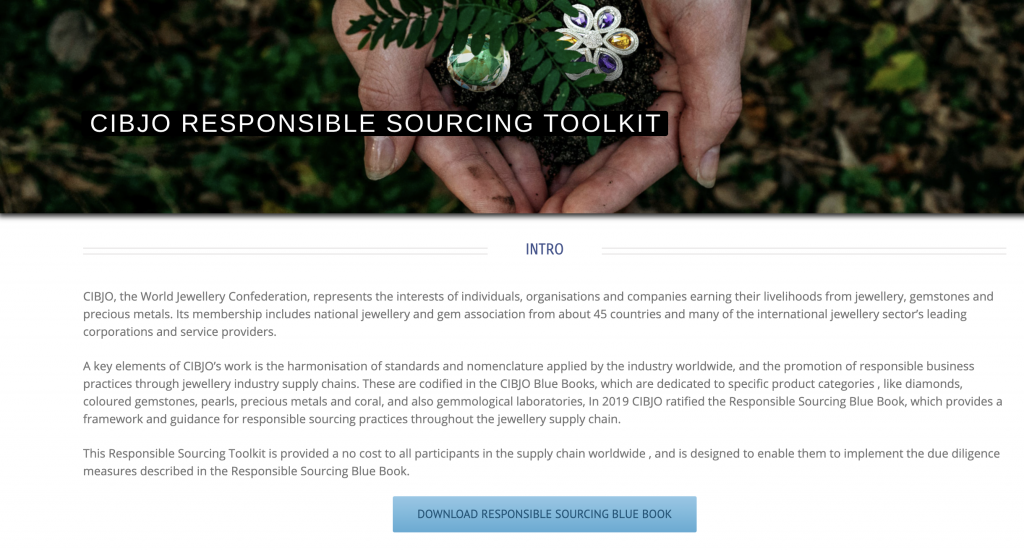CIBJO Launches Free Responsible Sourcing Toolkit
CIBJO, the World Jewellery Confederation, has announced that it has launched an online Toolkit designed to enable all members of the jewellery and gem sector to conduct responsible sourcing due diligence on their supply chains. The digital files of which the toolkit is comprised can be downloaded at no cost from a dedicated mini-website, located at www.cibjo.org/rs-toolkit.
The CIBJO Responsible Sourcing Toolkit supports the CIBJO Responsible Sourcing Book, which provides companies in the jewellery supply chain with a framework and guidance for due diligence for the responsible sourcing of gem materials and precious metals.
The Toolkit was developed for CIBJO by the Coloured Gemstone Working Group, which is a forum of leading gem and jewellery companies dedicated to helping businesses in the coloured gemstones supply chain be more sustainable, and making responsible sourcing part of the way they operate. The work of the Coloured Gemstone Working Group is facilitated by TDI Sustainability, an advisory firm specialising in the jewellery, gemstone and mining industries.
The Toolkit comprises nine modules, each one of which relates to a specific section of the Responsible Sourcing Blue Book. Each module provides a detailed explanation of that section, and also a number of downloadable files, in MS Word or PDF format, which can be used to do the due diligence described. They include templates, forms, sample declarations and additional information.
While the modules are organised in the sequence that the subjects are addressed in the Responsible Sourcing Blue Book, they do not need to be applied in any particular order. However, it is recommended that users complete the first four modules before continuing on to the remaining five modules. These four modules relate specifically to establishing and implementing a responsible supply chain policy, basic supply chain due diligence, and Know Your Counterparty (KYC), both as it relates to anti-money laundering and bribery and facilitation payments.
Most of the tools in the Toolkit can be used with no additional costs involved. A small number will require support of third-parties, and in those cases, the Toolkit lists appropriate alternatives.
